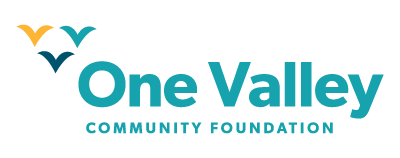Donation Scams Targeting Montana Nonprofits
At One Valley Community Foundation, we are deeply committed to supporting our local nonprofit sector by keeping you informed with the latest news and resources. We have recently been receiving reports of a donation scam targeting nonprofits. Here’s what you need to know to stay vigilant.
The Scam in Detail
Scammers are sending fraudulent checks (large and small) that appear highly realistic to nonprofits. Here are the key details:
Realistic-Looking Checks: Nonprofits are receiving checks that bear the name of a legitimate bank (ie. Wadena State Bank) but lack standard security watermarks that genuine checks include.
False Account Information: The checks are typically issued from a non-existent account (ie. Mile 83 Properties LLC).
Request for Funds Back: After sending the check, the scammers wait for the nonprofit to confirm that it has been deposited and then request that funds or a portion of the funds be sent back.
The Bounce: The check eventually bounces because the account does not exist, leaving the nonprofit liable for the amount sent back.
Example of fraudulent check
Red Flags to Watch For
Unsolicited Donations: Be cautious of unexpected checks from unknown entities or donors.
Lack of Watermarks: Check security features like watermarks which are standard on legitimate checks.
Urgency to Confirm or Return Funds: Scammers often create a sense of urgency to pressure you into sending money before realizing the check is fraudulent.
Suspicious Entities: Verify the legitimacy of the issuing entity and account. For instance, research Mile 83 Properties LLC or any unfamiliar donor names.
What to Do If You’ve Been Targeted
DO NOT EVER send money to someone whose identity you cannot verify with 100% certainty.
When in doubt – ask the donor to wait 30 days before issuing a refund.
Report the incident to the Montana Nonprofit Association (MNA) by calling 406-449-3717 or emailing mna@mtnonprofit.org.
We also ask that you report it to the Attorney General’s office (File a Scam Report), the Internet Crime Complaint Center, and the FTC.
Reporting the scam will help MNA gather resources in case a member of the nonprofit community does fall victim to the scam and needs help recovering the funds.

